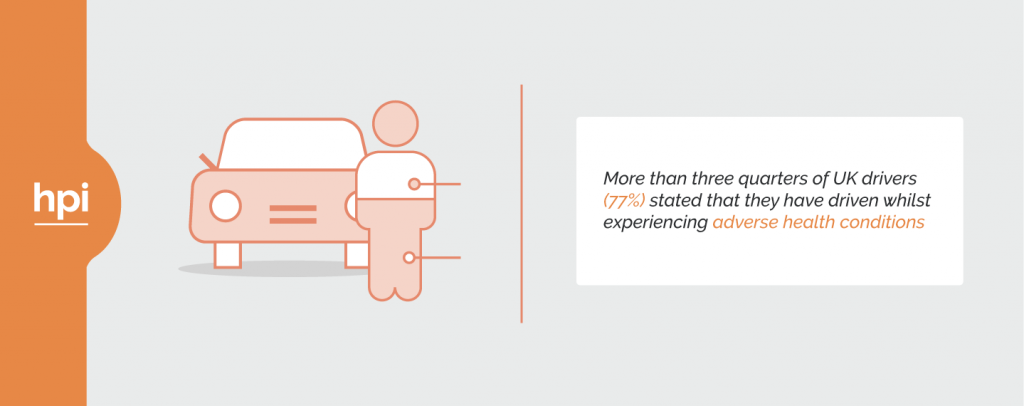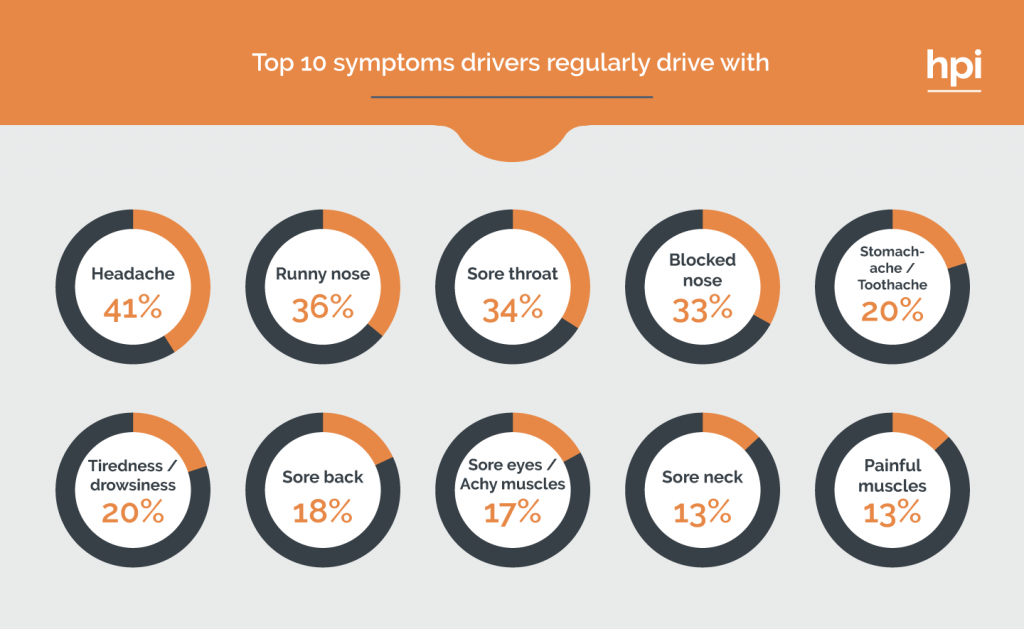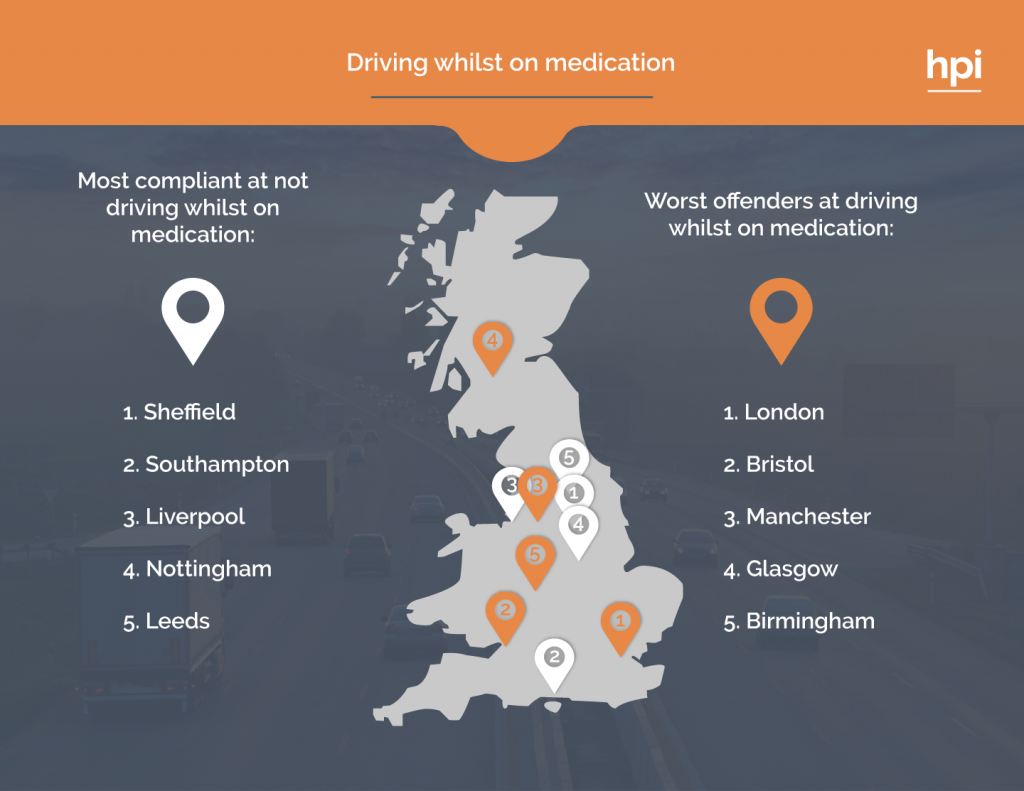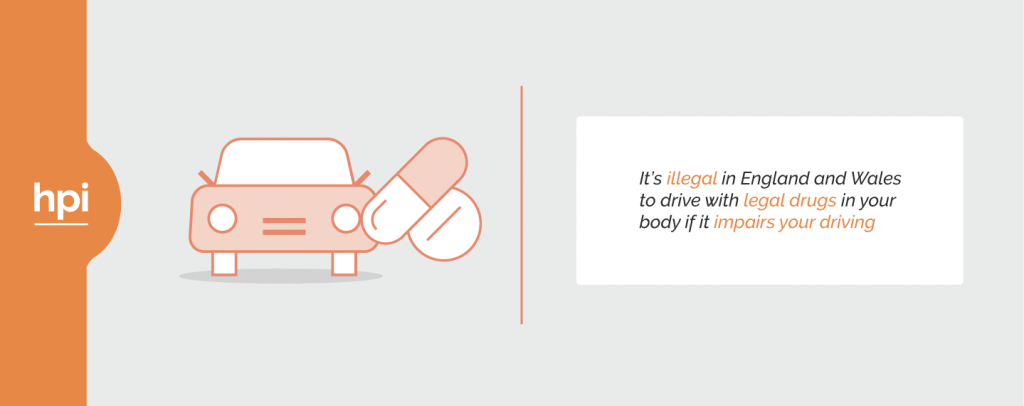The Dangers of Driving When Ill or Injured

With busy lives and important commitments, we often find ourselves powering through the day, even when we don’t feel 100% well. This means we are frequently performing routine tasks and procedures, when really we should be resting at home with our feet up. One such routine task is driving our car.
As part of our recent survey, we discovered that more than three quarters (77%) of UK drivers have been out on the roads while experiencing adverse health conditions, potentially putting themselves, and others at serious risk.

But, which illnesses are most common? And how do things differ depending on gender, profession and geographical location? HPI found out…
Feeling below par
Do you frequently suffer from tension headaches or migraines? According to the UK drivers that we surveyed, 41% of them have set off in their car while suffering from head pains of some sort. This is, in fact, the most common health condition to drive with, followed by a runny rose (36%) and a sore throat (34%) – both symptoms of the common cold.
Stomach aches and toothaches are also niggly complaints that we have experienced when driving, with 20% of us carrying on regardless of the pain. Streaming eyes, swollen sinuses and a blocked nose – all common symptoms of seasonal hayfever – are also things we drive through, despite feeling lousy.
Whether caused via a heavy session at the gym or from a previous accident, painful muscles (13%), a sore back (18%) and a sore neck (13%) have all been experienced from behind the steering wheel, while in an ideal world we would all be feeling comfortable and relaxed.

Probably most worryingly of all, our survey showed that 20% of UK drivers have continued to operate their motor despite feeling tired and drowsy – something that could end in a nasty disaster affecting innocent pedestrians and other motorists.
Driving under the influence of medication
When it comes to relieving the symptoms of our ailments, many of us opt to take prescribed or over-the-counter medication.
Although having been clearly advised to avoid taking specific medications before driving, 34% of motorists admit to ignoring these guidelines completely. Shockingly, this is not just on an emergency basis. 20% of those aforementioned drivers do this once a week or more, with another 11% not even sure if they should be allowed to drive or not.
Although the side-effects of each medication can be very different and dependent on the user, the most common effects experienced by drivers are tiredness (28%), impaired thinking (19%), poor coordination (16%) and dizziness (13%) – all of which are completely hazardous when trying to concentrate on the road.
Demographic divides
When it comes to singling out a particular gender, it seems that men are more likely to put themselves, and others, at risk than women. 37% of men have driven while taking medication that advises them not to drive and 20% do so once a week, or more.
This compares to 31% of women who have done the same, with 10% unsure whether they should be driving or not.
With job pressures and unforgiving bosses, it seems there is a trend when it comes to the worst offending professions. Surprisingly, those working in the legal sector were the least compliant when it came to listen to advice to not drive whilst talking specific medication.
Workers in HR/recruitment roles are next, with medical professionals and those in the creative industry also regularly admitting to driving whilst on strong medication against other advice.

Although the roads in London are often chaotic, stressful and hazardous enough, it seems that the residents in our capital city are the worst culprits of driving on medication. Closely followed by those living in Bristol, Manchester and Glasgow. Those living and driving in Birmingham are also up there with the worst-offending drivers under the influence of medication. Can you imagine driving around Spaghetti Junction with a cracking headache or poor coordination?
Expert advice
Did you know that it is actually illegal to drive in England and Wales with drugs in your system that might impair driving? Even if these drugs are legal and have been prescribed by a doctor.

Many common drugs, including anti-inflammatories, antihistamines, antibiotics, antidepressants, and epilepsy drugs, can cause side-effects that impair coordination and cause drowsiness. Therefore, drivers should always read the label and packaging for advice before operating machinery of any kind, including a motor car. Co-codamol, morphine and codeine are just some of the drugs prescribed for severe pain that have drowsy side effects.
We spoke to Dr Luke James from Bupa UK to get some additional insight from a medical point of view: “Medications can affect people in different ways, so it’s important to only take them in accordance with the advice included in their accompanying leaflet. Additionally, you should talk to your doctor about any possible side effects before starting or changing your dosage, including whether they’re likely to affect your driving safety.
“If impaired driving is a potential side effect, you should avoid driving for the first five days of starting or changing your dosage and speak to your doctor to establish whether you’re both happy that you’re safe to get back behind the wheel”.
James O’Loan, Consultant Pharmacist at Doctor4U also commented: “Many popular antihistamines used to treat hay fever can cause drowsiness, along with some popular cough medicines and treatments for motion sickness. The main ingredients to look out for are diphenhydramine (found in Benadryl), dextromethorphan (found in Night Nurse and some own-brand cough syrups) and hyoscine hydrobromide (found in travel sickness tablets such as Kwells).
“You may also want to take caution when using eye drops, as these can temporarily affect your vision. We always advise that you thoroughly read the patient information leaflet that comes with any medication, familiarise yourself with the side effects, and not to drive if you feel drowsy, dizzy, or confused”.
Driving responsibly takes a great deal of concentration and feeling unwell can cause a driver to miss things on the road that they would normally notice. Keep yourself and others safe by recognising how you feel, assessing your symptoms and always being aware of the effects of any medication you consume. If you’re interested in similar motoring topics, please feel free to bookmark our blog.



